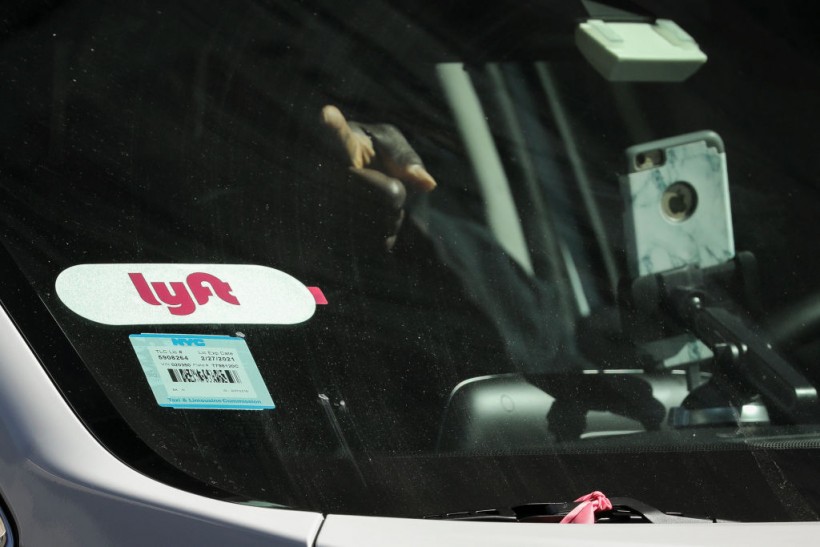Will Lyft drivers be replaced by autonomous cars? After co-Founder and President John Zimmer told CNBC's Jim Cramer on Tuesday, June 7, that the future of the ridesharing company will hinge on a hybrid network of driverless vehicles.

NEW YORK, NY - MARCH 19: A Lyft logo is displayed on a vehicle driving through Times Square, March 19, 2019 in New York City. Lyft, the popular ride-hailing service and competitor to Uber, is planning its initial public offering (IPO) on the NASDAQ stock exchange in the coming weeks.
Driverless Future?
Lyft drivers won't be completely displaced by the company's driverless vehicles, so they have nothing to worry about.
According to the company's president Zimmer, Lyft is still planning for the hybrid network, but the majority of the fleet will still be commandeered by non-autonomous vehicles.
Zimmer likened the plan to phone networks. He argued that one still needed to be able to make a 3G call when 4G wasn't accessible, adding that we " didn't have 3G go to 4G go to 5G on separate networks."
He said that the same thing is true for autonomous cars, noting that once the hybrid network starts its operation, it will only do five percent of the trips, and the remaining 95% will still hinge on the responsibility of a rideshare driver.
Similar to when LTE was first introduced, and mobile users could only connect to the internet via 3G, Lyft passengers will still need the guidance of the ridesharing company's drivers.
"So that's all going to happen within the Lyft network, and we'll scale up with our autonomous partners," Zimmer added.
Read also: Lyft Plans to Cut Back on Hiring After Dropping Over 60% in 2022
Lyft's Future and Its Collaborations
Zimmer foresees a network in which autonomous vehicles will initially account for a tiny fraction of all trips, with rideshare drivers accounting for most of those booked through the platform.
However, Lyft intends to expand its driverless rides with its partners, so those percentages will continue to vary in the future.
The company's co-founder also said to Cramer that the ridesharing network has witnessed a "40% active drivers year-over-year improvement" and that productivity has increased more than ever after Lyft arranged 20% more rides per driver in the first quarter of 2019 than in the first quarter of 2018.
However, earlier this year, high gas prices have resulted in a shortage of rideshare drivers, and the COVID-19 situation made it even worse since it has kept many drivers off the road.
Since at least 2018, the ridesharing business has been testing self-driving rides in Las Vegas with its partner Motional, which happens to be a joint venture between Aptiv and Hyundai.
Lyft also announced last year that it would join with Motional to develop an autonomous robotaxi service in Las Vegas as well.
The announcement follows the company's plan back in 2020 when it said that it would provide fully autonomous vehicles to numerous US locations by 2023.
Furthermore, Lyft has a collaboration with Ford, and they're now testing the latter's Argo-AI-powered cars on Miami and Austin roads without a human safety driver.
Related Article: Lyft is Bringing Back Carpooling in Five US Cities After 16 Months Suspension
This article is owned by Tech Times
Written by Joaquin Victor Tacla









